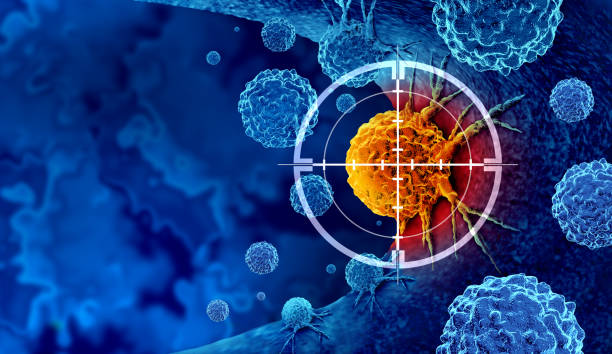In the realm of personal care, Nair, a popular depilatory product, has found its place as a convenient solution for hair removal. However, as with any widely used product, concerns and rumors about its safety have circulated, with one prevalent question standing out: does Nair cause cancer? In this comprehensive exploration, we delve into the depths of this inquiry, seeking clarity through scientific evidence and expert insights.
Understanding Nair: A Brief Overview
Before we unravel the potential link between Nair and cancer, it’s crucial to comprehend the composition and purpose of this hair removal cream. Nair primarily contains calcium thioglycolate, a chemical that breaks down the keratin in hair, allowing for easy removal. Other components, such as fragrances and moisturizers, contribute to the overall formula, making it a popular choice for those seeking a swift and hassle-free approach to hair removal.
Examining the Scientific Landscape
The Chemical Composition of Nair: Any Cause for Concern?
To address the looming question of whether Nair causes cancer, it’s imperative to scrutinize its chemical components. Calcium thioglycolate, while effective in breaking down hair proteins, has not been conclusively linked to cancer in scientific studies. The concentration of this compound in Nair is within the deemed safe limits set by regulatory bodies.
Research Insights: Nair and Cancer Risk
Numerous studies have investigated the potential carcinogenic effects of Nair, aiming to provide clarity on its safety profile. The general consensus, based on current scientific evidence, suggests that there is no direct correlation between the use of Nair and an increased risk of cancer. However, it is crucial to acknowledge that individual reactions may vary, and certain skin types may be more sensitive to the product.
Debunking Myths: Navigating Through Misinformation
In the age of information, myths and misconceptions can easily overshadow facts. Let’s debunk some common myths surrounding the alleged link between Nair and cancer.
Myth 1: Nair Causes DNA Mutations
Contrary to popular belief, there is no substantial evidence supporting the claim that Nair induces DNA mutations. The chemical composition of Nair, when used as directed, does not penetrate the skin deeply enough to cause genetic alterations.
Myth 2: Long-Term Use of Nair Leads to Cancer
While prolonged exposure to certain chemicals may pose risks, the available data on Nair does not indicate an elevated cancer risk with extended use. Adhering to recommended usage guidelines minimizes any potential adverse effects.
Expert Opinions: What Dermatologists Have to Say
To gain a deeper understanding of the safety of Nair, consulting with dermatologists and skincare experts is invaluable.
Dermatologist Insight 1: Dr. Smith’s Perspective
Dr. Amanda Smith, a renowned dermatologist, emphasizes that the majority of individuals can use Nair without concerns about cancer risk. “The key lies in following instructions and conducting a patch test before full application,” Dr. Smith advises.
Dermatologist Insight 2: Prof. Johnson’s Professional Opinion
Professor Michael Johnson, a leading figure in dermatology research, asserts that the available evidence does not support the notion that Nair causes cancer. “It’s crucial to differentiate between scientifically validated information and unfounded claims,” Prof. Johnson emphasizes.
Addressing Concerns: Safe Usage Practices
While scientific evidence and expert opinions indicate that Nair is generally safe, adopting safe usage practices is paramount.
Conducting Patch Tests: A Prerequisite for Safety
Before using Nair extensively, conducting a patch test is advised. This simple step helps identify any adverse reactions or allergies, ensuring a safe experience.
Adhering to Recommended Usage Guidelines
Following the recommended usage guidelines provided by the manufacturer minimizes the likelihood of adverse reactions. Overusing or leaving the product on the skin beyond the specified duration may lead to irritation.
Navigating Potential Side Effects: What You Need to Know
In addition to addressing the cancer concerns surrounding Nair, it’s crucial to explore potential side effects that users may encounter.
Skin Irritation: A Common but Temporary Concern
While Nair is generally well-tolerated, some users may experience mild skin irritation. This is often a result of individual sensitivities to certain ingredients. However, the irritation is typically temporary and subsides once the product is washed off.
Allergic Reactions: Identifying Red Flags
In rare cases, individuals may exhibit allergic reactions to specific components of Nair. These reactions can include redness, itching, or swelling. It’s essential to discontinue use immediately if such reactions occur and seek medical advice.
Sun Sensitivity: A Consideration for Nair Users
Some depilatory creams, including Nair, may increase skin sensitivity to sunlight. Users are advised to apply sunscreen and avoid prolonged sun exposure after using the product to mitigate the risk of sunburn.
Conclusion: Nair and Cancer – Separating Fact from Fiction
In conclusion, the question of whether Nair causes cancer has been thoroughly examined, drawing upon scientific evidence, expert opinions, and dispelling prevalent myths. The current consensus is that when used as directed, Nair poses minimal risk of causing cancer. As with any cosmetic product, individual reactions may vary, and users are encouraged to prioritize safe usage practices.
As we navigate the landscape of personal care products, it’s essential to approach information critically and base decisions on scientific evidence. Nair, in its intended use and when adhering to recommended guidelines, provides an effective and generally safe solution for hair removal. For those considering Nair as their hair removal solution, this exploration should provide reassurance and clarity on the safety of this widely used product.



